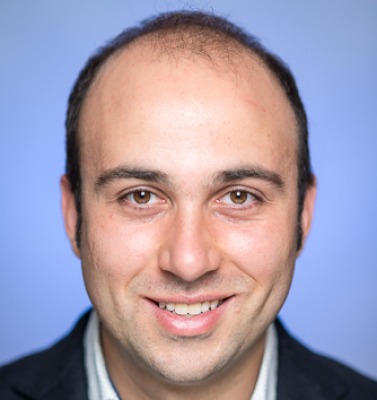Dr Marco Pensalfini
BSc (Bologna); MSc (Bologna); PhD (Dr. Sc. ETH)
Lecturer in Mechanical and Biomedical Engineering
Centre for Bioengineering Representative in the IT Committee
219A, Engineering, Mile End
| Feedback/ support hours: |
Please book an appointment during these time slots: - in person, Tuesdays 3-4pm - on-line, Tuesdays 4-5pm |
| Expertise: | My expertise is at the interface of mechanical and biomedical engineering, with a focus on the multiscale mechanics of soft fibrous biomaterials. A central theme is the development of novel experimental approaches combining mechanics and imaging techniques to unravel mechanisms of load redistribution across tissue lengthscales and address their mechanobiological relevance. I also have broad experience in establishing two-way links between experiments and corresponding computational models with predictive or interpretative function, including inverse FEA and hierarchical Bayesian inverse analysis. My work is intrinsically multidisciplinary, and over the years I have initiated multiple collaborations with clinical and industrial partners. |
| Research Centre: | Bioengineering |
Brief Biography
I am a Lecturer/Assistant Professor in Mechanical and Biomedical Engineering at Queen Mary, University of London. My team investigates the multiscale biomechanics and mechanobiology of largely deformable materials relying on fiber networks, such as connective tissues, epithelia, and their surrogates.
Previously, I have been Project Leader for a Spanish Marie-Curie match-up grant and Research Director for an ERC-Consolidator grant at the Universitat Politècnica de Catalunya-BarcelonaTech, and I have acquired MedTech industry experience by working as Senior Research Engineer for Zimmer Biomet.
I hold Mechanical Engineering degrees from ETH Zurich (PhD: '19) and Bologna University (MSc: '14; BSc: '11), including stays at Purdue University and UW-Madison. My work has been awarded the 2020 Young Investigator Award by SKINTEGRITY.CH, the Swiss-wide consortium for research on skin.
Previously, I have been Project Leader for a Spanish Marie-Curie match-up grant and Research Director for an ERC-Consolidator grant at the Universitat Politècnica de Catalunya-BarcelonaTech, and I have acquired MedTech industry experience by working as Senior Research Engineer for Zimmer Biomet.
I hold Mechanical Engineering degrees from ETH Zurich (PhD: '19) and Bologna University (MSc: '14; BSc: '11), including stays at Purdue University and UW-Madison. My work has been awarded the 2020 Young Investigator Award by SKINTEGRITY.CH, the Swiss-wide consortium for research on skin.






